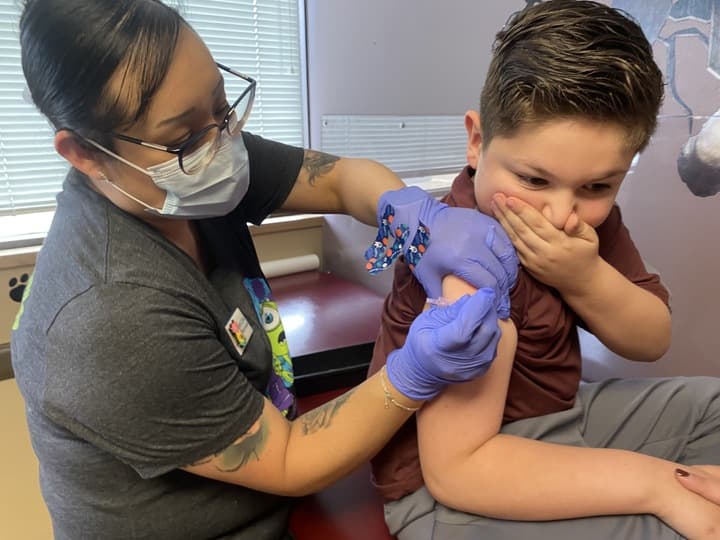

Green Lady Gardens is like a verdant oasis from the concrete and bustle of Sante Fe Drive, just south of downtown Denver. The small space is packed with plants. Jessica Schutz started this boutique to fill a need.
“I felt like all the other house plant stores were kind of boring,” Schutz said. “They are all just white walls, kind of uninspiring and I really like colors. And I really like plants, and plants and colors are in, so it’s like my time.”
Schutz’s story is shaped by more than a love of plants. Student loan debt (coupled with the Great Recession) conspired to force her from her desired path to be a conservationist.
Student loan debt across the U.S. grew 157 percent in the last 11 years, according to an analysis by Bloomberg. In Colorado, the Institute for College Access & Success said grads have an average student debt load of $26,530.
Schutz went to the University of Colorado Boulder, and then to grad school at the University of Montana. She was a Fulbright Scholar studying in Mongolia when the Great Recession hit.
“I remember my dad calling me being like, ‘things are really bad here, things are really bad,’” she said. “And I’m working in the countryside, I have no idea.”
Schutz had a positive attitude at the time and she was convinced she would be able to get the job of her dreams. That wasn’t the reality when she returned from Mongolia. Instead, she graduated into the worst job market since the Great Depression.
Despite years of study and some impressive academic credentials, she couldn’t find a job that matched her skills. Her student loans created a constant sense of urgency.
“My student loans are almost as much as our mortgage every month,” Schutz said.
She has had to work at admin jobs to pay down some of the debt. A loan from her mom helped her to buy a house. When the commercial space on Sante Fe became available, she took out a second mortgage and started her plant shop.
Schutz hopes someday to get back to the environmental movement.
Ben Wurzel, Money Sense program manager at CU Boulder, said some some students don’t “consider the impact of what they’re borrowing until they are wrapping up their college education.” Wurzel works with many students who are surprised how much and how long they’ll be paying off their loans.
In the vast majority of cases, higher education is worth the investment, and Wurzel said about $30,000 of debt is manageable.

“It’s when you start getting way above that, and also when you start seeing six-figure debt loads, that you want to be really careful about how much you’re borrowing and think about how you’re going to pay that back,” he said.
If the student’s degree is in something like engineering or computer science, that’s easier to do. It’s a lot harder with a liberal arts degree. Ben Key, a professor at the University of Pennsylvania who studies student loan debt, said success with any degree is a “function of bad luck or good luck.”
“If you graduate into a good economy there’s going to be more plentiful jobs, better paying jobs and it’s going to be a lot easier to pay off your loans,” he said.
It’s not a surprise to Keys that many students graduate with little understanding of their future loan debt, or how difficult it is to get that debt forgiven. It’s out of sight out of mind for most. For him, a greater effort to counsel students before they start accumulating debt is part of the solution.
Another part is for states to help make higher education more affordable.
“I think we need a broader recognition that the big increases in tuition have really shifted the burden onto younger and younger people, and they really need our help when times are tough,” he said.
The shift has been particularly dramatic in Colorado, due to deep cuts to the higher education budget. A report from the Colorado Commission on Higher Education found that back in 2000 the state picked up 68 percent of the cost of college. By 2012 that flipped, with students and families covering two-thirds of the cost. Though in recent years, cuts have slowed and tuition increases have been smaller.
Adding to the hardship, payments on the loans are due just after graduation when a student’s earning potential is at their lowest, Keys said. That debt can delay homeownership and marriage and other life milestones.
Jessica Schutz’s timing in the job market was terrible and her loan debt high, but that didn’t slow her down, it just altered her trajectory. She could have just toiled at jobs she hated to pay the loans back and been bitter, “but that’s not really in my nature,” she said.
Instead, she found a new passion selling house plants. She admits though, she’s fortunate to have a supportive family and husband. Other graduates aren’t so lucky.









